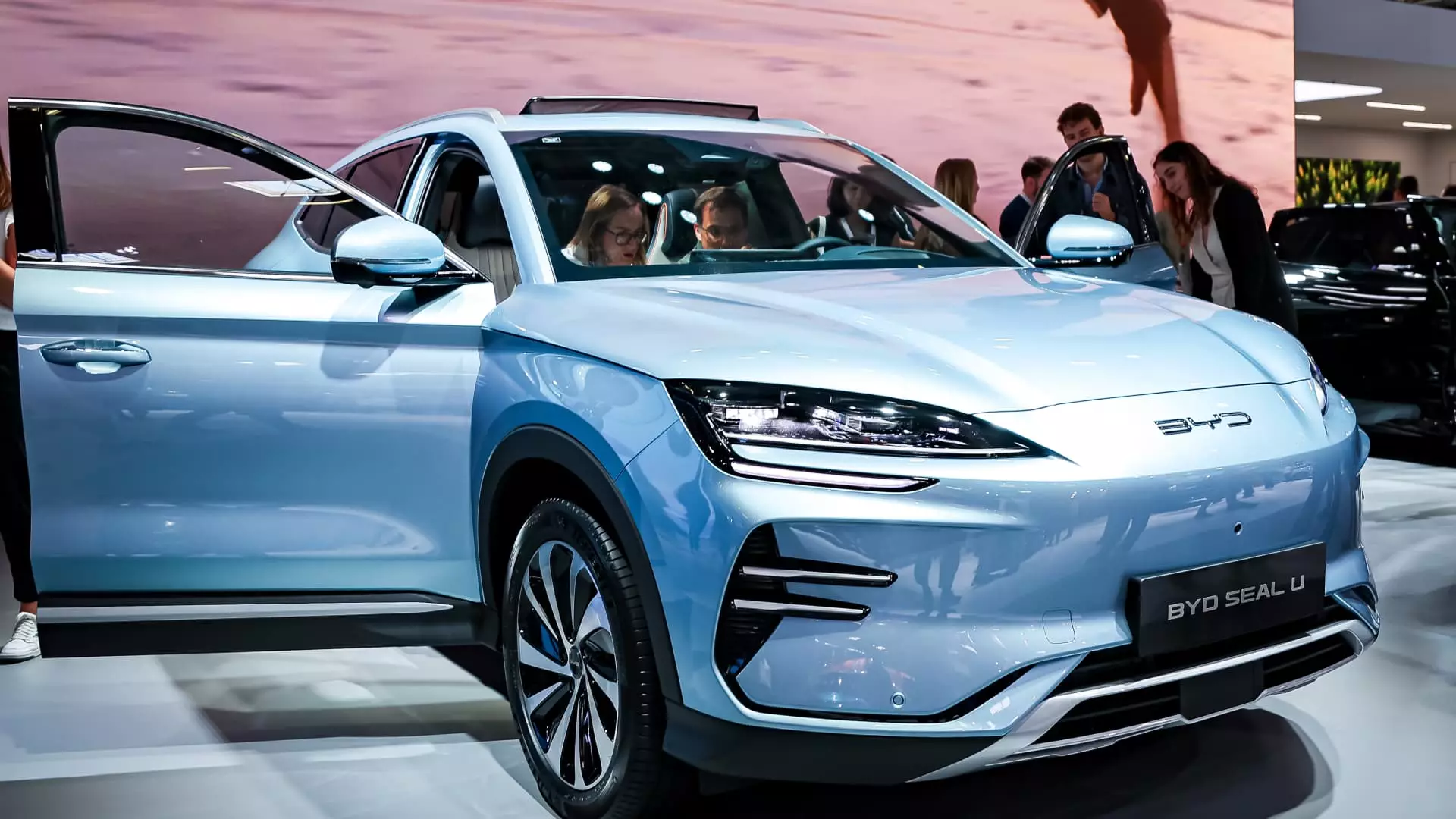The Chinese electric vehicle maker BYD is making significant strides in the battery electric vehicle (BEV) market, with expectations to surpass Tesla in sales this year. According to a recent report from Counterpoint Research, BYD’s market share for BEVs is projected to surge, highlighting the evolving landscape of the global EV market. In the second quarter of this year, BYD saw a notable increase of nearly 21% year on year in battery EV sales, reaching 426,039 units, while Tesla experienced a decrease of 4.8% in deliveries, totaling 443,956 vehicles.
In the previous year, BYD’s total production exceeded 3 million units, including both battery-only powered cars and hybrids, surpassing Tesla’s production of 1.84 million cars for the second consecutive year. However, when it comes to BEV production, Tesla still holds the lead, as BYD manufactured 1.6 million battery-only passenger cars and 1.4 million hybrids. Despite losing the top EV vendor position to Tesla in the first quarter, Counterpoint emphasizes China’s continued dominance in the BEV market, with BYD leading the way.
Global Expansion and Market Projections
BYD’s success in the EV market has attracted notable investors, such as Warren Buffett’s Berkshire Hathaway, who has profited significantly from their collaboration. The projections indicate that China will maintain more than 50% of the global market share for BEV sales until 2027, with Chinese BEV sales expected to surpass those of North America and Europe combined by 2030. While China’s dominance in the EV market persists, the European Union has imposed additional tariffs on Chinese EV firms to protect its local industry from competition.
The European Union’s decision to impose additional tariffs on Chinese EV firms, including BYD, Geely, and SAIC, is aimed at leveling the playing field for European manufacturers facing challenges in competing with lower-priced Chinese imports. The tariffs, ranging from 17.4% to 38.1%, alongside the existing 10% duty on imported EVs, may redirect Chinese automakers towards emerging markets in regions like the Middle East, Africa, Latin America, Southeast Asia, Australia, and New Zealand. Despite the challenges posed by tariffs, the growth of Chinese EV firms is expected to continue, driven by efforts to enhance cost-efficiency and affordability for EVs and EV batteries.
As Chinese electric vehicle maker BYD gains momentum in the global EV market, its success presents a shift in the traditional landscape dominated by companies like Tesla. With a strong focus on BEV production and market expansion, BYD is poised to make a significant impact on the industry in the coming years. The evolving dynamics between Chinese and global EV firms, along with regulatory challenges like tariffs, will shape the future of the electric vehicle market and create new opportunities for growth and competition.

